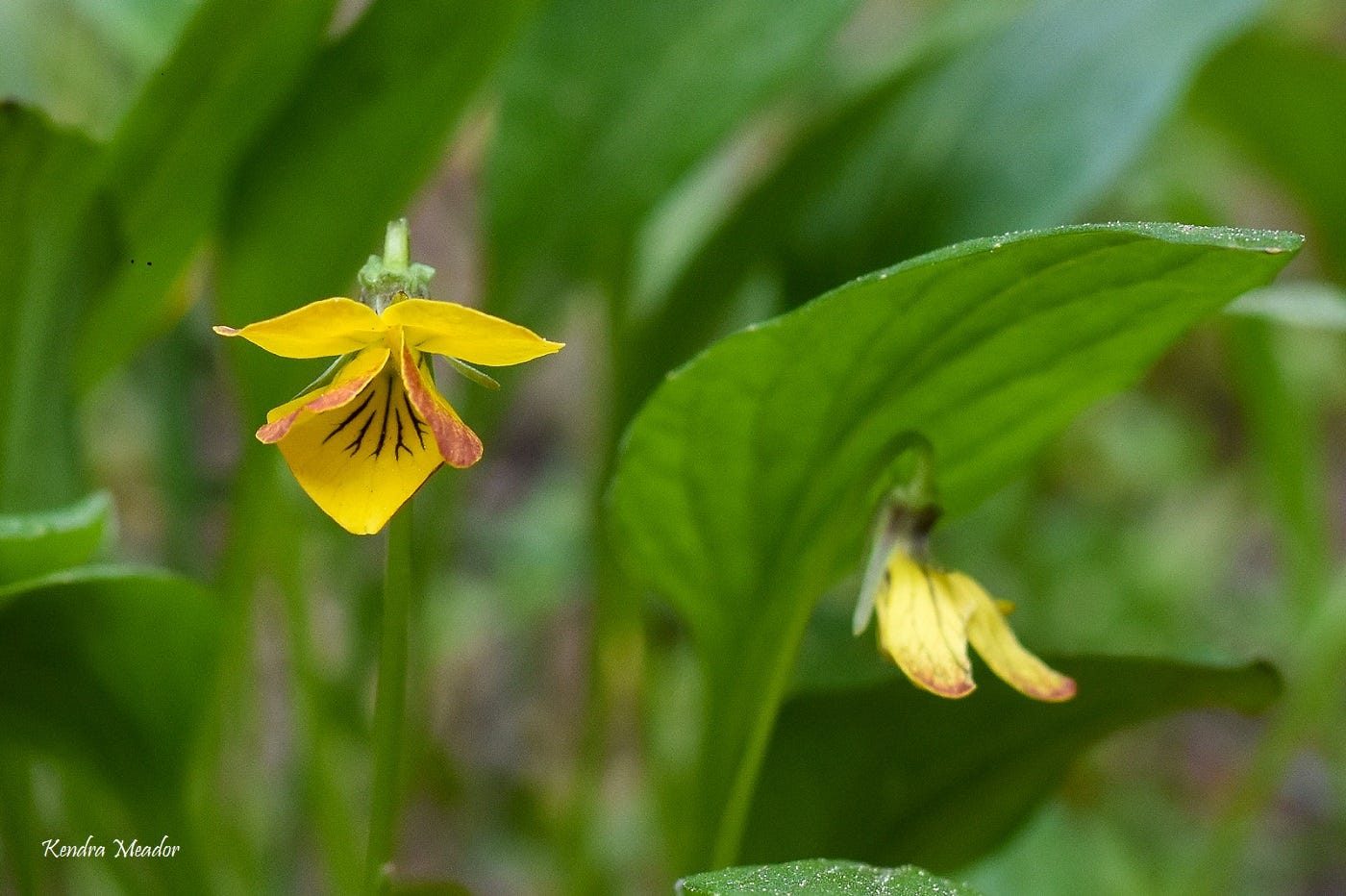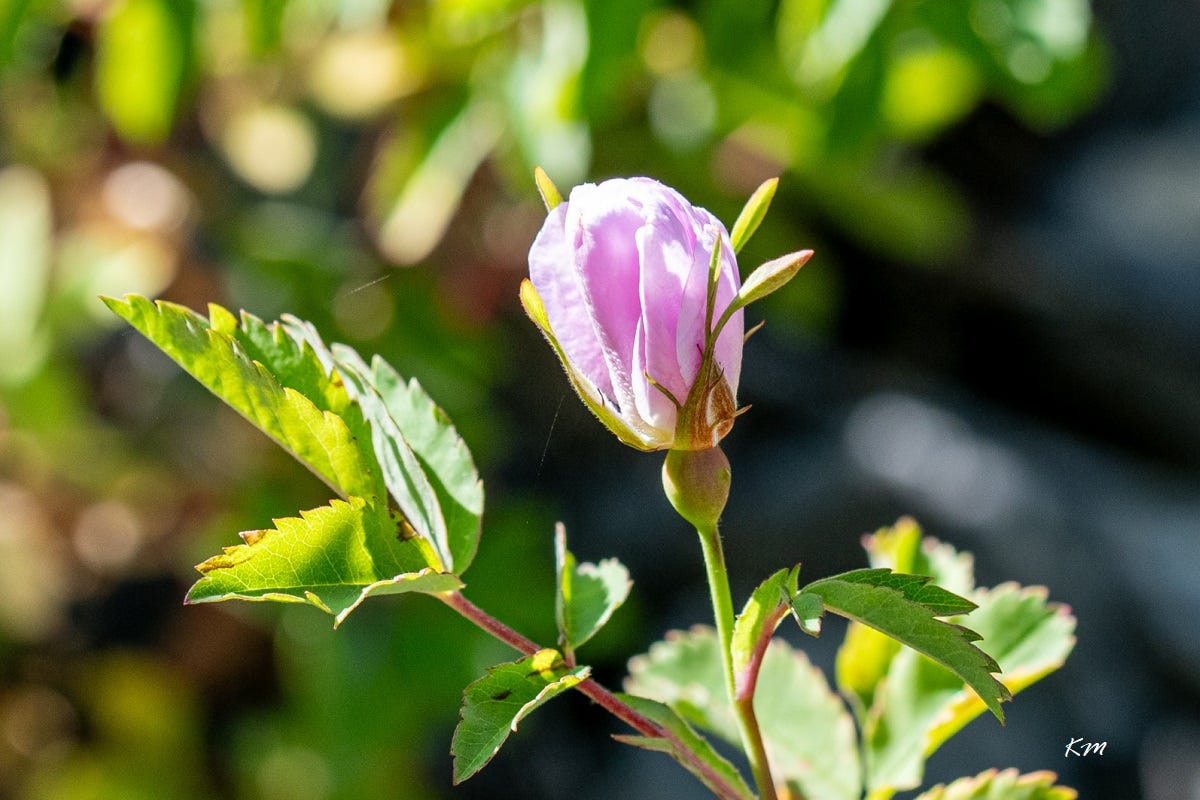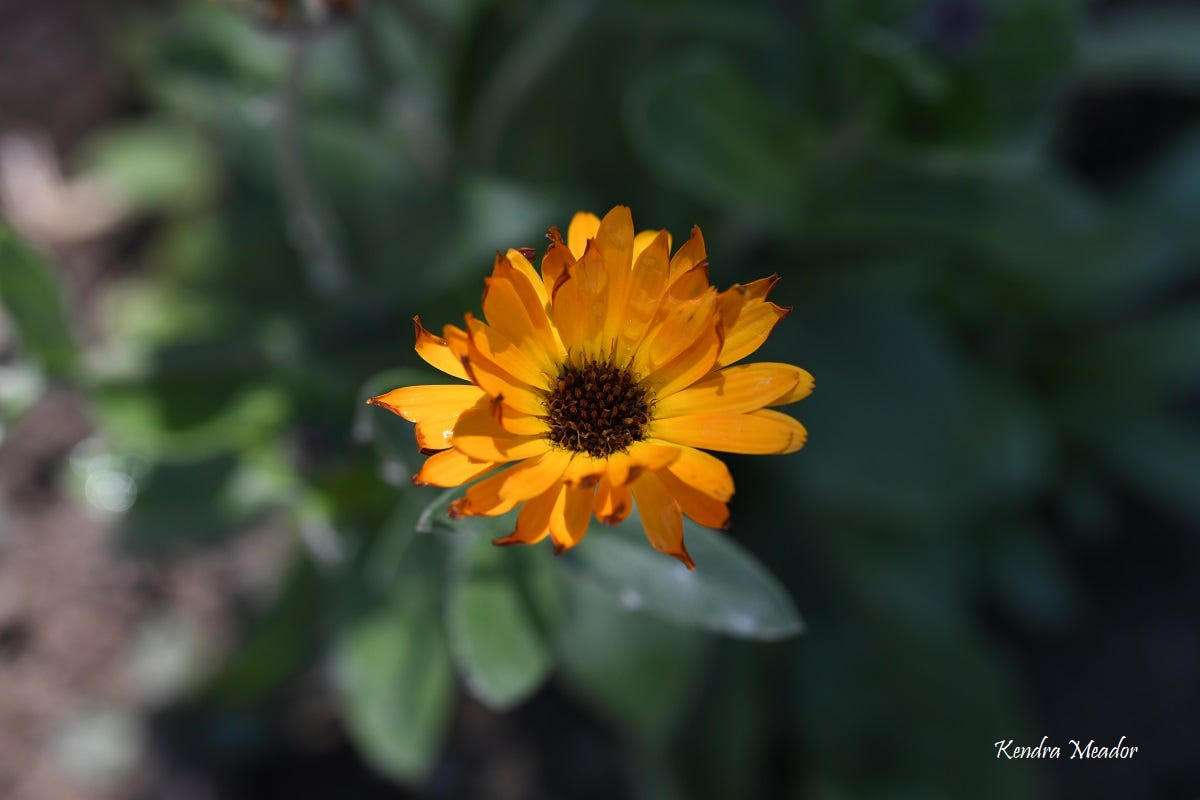How to Befriend Our Herbal Allies
The importance of developing a reciprocal relationship with herbs.
I’d been working with herbs for a few years before I realized that I was approaching them from a limited perspective. I wasn’t giving the plants the respect they deserved; they were just a commodity, a way to treat an illness or health concern.
My first herbal training was with a naturopathic doctor who emphasized the scientific aspects of herbalism. While this is essential, we didn’t explore how building relationships with plants adds another dimension to the study of herbs.
We should be more mindful of why we use herbs and avoid falling into the same old patterns we have with pharmaceuticals. Admittedly, I am a medical professional, and some habits are tough to break—especially after being in the field for 25 years! 😊
No matter how difficult, it’s time to remove the old way of thinking. The one that says if something is not scientifically proven, then it’s not effective. And we can’t go too far in the other direction and claim that science doesn’t have its place within herbalism.
As with everything in life, there must be balance.
* We still need to be cautious about side effects, drug interactions, and contraindications when using herbal remedies, especially alongside pharmaceuticals. However, this is not the main focus of this article.
Pharmaceuticals Vs Herbs
For one thing, herbs differ from pharmaceuticals. I believe this is one of the main reasons why many people are drawn to natural remedies. We don’t want drugs that are synthesized and processed, concentrating solely on a single chemical.
*Note:* Pharmaceuticals play an essential role in certain situations.
It’s important to understand that the effectiveness of herbs comes from the way ALL of their chemicals interact to promote healing and help restore homeostasis.
Consider aspirin, for instance. Its origins began with willow bark in a roundabout way. Willow bark contains the compound salicin. When ingested, salicin converts to salicylic acid in the body.
In the 19th century, a scientist synthesized acetylsalicylic acid from salicin in willow bark to create the well-known drug, aspirin. Today, aspirin (salicylic acid) is derived from petroleum.
Ponder what happens when you drink willow bark tea. Is it different from taking a pill?
Isolating compounds remove the plant’s energy and essence, eliminating its synergetic actions. If we want to return to a more natural way of healing, we can’t treat herbal remedies like pharmaceuticals.
Which is why I’m proposing that you befriend your herbal allies. Like any healthy relationship, this will benefit both parties.
Western Medicine Has It Wrong
The Western approach to treating illnesses usually involves taking medication for a symptom. For example, if you have a headache, you might take acetaminophen without considering why you have a headache in the first place.
Many diseases and illnesses go unaddressed because we fail to examine the root cause. Instead, we find it easier to treat the symptoms and overlook what is really happening. This cannot be how we approach herbalism.
Knowing the gifts a plant provides to each body system is a great place to start, but we have to go a bit deeper at some point. As I’ve begun growing my own herbs in the last couple of years, I’ve realized that an important aspect was missing:
Connection with the spirit or essence of the plant.
I’m not going to get all woo-woo here, but if you’ve spent any time in the natural world, you know exactly what I’m talking about. Plants have energy, and we can sense that energy just as they can sense ours.
A relationship with a plant is different from one with a person or a pet, but it is no less valid or beneficial.
I shared a note some time ago about befriending plants rather than simply using them. Embracing this idea will enhance our skills as herbalists, gardeners, and individuals.
However, we shouldn’t approach this focusing on what we can gain from the relationship; it’s about improving the world around us and being more in tune with nature and with ourselves.
Developing a Relationship
🌻 There is no right or wrong way to cultivate a relationship with herbs. Do what feels right for you. 🌻
I’m drawing from my own experience here, but this is how I suggest we befriend the herbs and develop a meaningful relationship.
Put all book learning aside. While there is a time and place for that, and it’s a good place to start, the only way to know the herb is to get outside and work with it.
Remove the phrase “use” and replace “work with” instead. So don’t say I use peppermint; say I work with peppermint.
Cultivate the herbs you wish to work with. Give them your attention, along with plenty of love and care. Spend time with them in all their seasons.
You’ll discover that the medicine from these plants is more vibrant and aligns better with your needs.
I get it. You may not be able to grow every single herb you work with (neither can I). However, you can purchase herbs from a local grower who shares your values about how the plants are cultivated and cared for.
At the very least, express gratitude and thank the herb when preparing and taking any herbal remedy.
Reciprocity is essential. No relationship will survive if you only take. You’ll find the plants are generous with their gifts, so offer them something in return.
I’ve even reached the point where I grow many herbs that I don’t use for medicinal purposes. I cultivate them because they enhance the beauty of my garden and play a vital role in maintaining a thriving ecosystem. And above all, because they are my friends. 🥰
Reference:
The aspirin story - from willow to wonder drug from the National Library of Medicine
Are you interested in taking this topic further?
Then, I encourage you to become a part of the Wild Soul Herbal Community.
This paid membership is for those who want to delve deeper into herbal medicine, its various aspects, and how herbalism can help us live more holistically.
Membership benefits: herbal monographs (in PDF form also), video herb walks & other shorts about plants, workshops, herbal recipes, private chat, and more.










One herb I definitely "work with" or have a relationship with is dandelion. Dandelion is everywhere, for 9/12 months where I live, in one form or another. I've come to know a lot about her medicinal benefits, but have always had a relationship with her even as a child when I knew nothing. In her flower form, she brightens up any area; is an early source of food; and turns into these magical wish-bringers if you blow her seeds just right across the earth.
Another is mullein, which I never noticed until just a couple of years ago and then couldn't stop noticing. I love the rosette blooms of the leaves the first year. I love the feel of the leaves and how helpful mullein was for me this year with respiratory issues during a particularly rough winter. I always say hi and stop to appreciate a plant when I find one. I know it can be aggressive but I can't imagine why anyone minds having mullein in their yard. (Mullein is invasive in North America so yes it is important to keep under control and not cultivate it. I still love him though.)
I can't remember if I shared this with you before, so forgive me if I have.
In school, we had a 3 month "herbal relationship" project. The goal of the first half was to pick a single herb and develop a relationship with it- the energetics, forms of use, spiritual elements, how it transformed us with daily dosing (as applicable to the plant) and really hone in on the way that it spoke to us individually. The second half was learning all the book things- what it's used for, the components, pharmacognosy, dosing, etc. Then, we combined all those things to write a report and drawing with the idea of giving someone who has never experienced the herb a full picture of it... I think my report was 30+ pages and was in the top 10 most meaningful experiences of my life.
I'm so thrilled you shared this framework and encouraged folks to befriend some herbs!